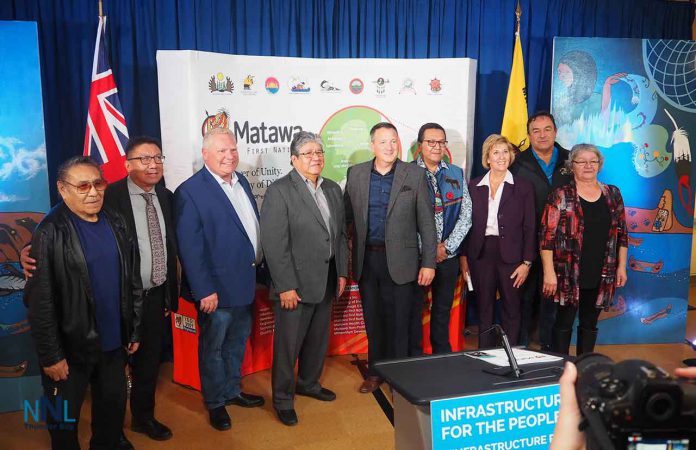
Further to a July 1, 2020 announcement sounding the alarm on the lack of 2020/2021 supplementary funding to make schools on First Nations safe in the COVID-19 global pandemic—Chiefs of the Matawa Chiefs Council (MCC) have accepted a comprehensive Matawa Emergency COVID-19 Education Response Plan that was developed by the Matawa EducationDepartment with First Nations schools/Education Authorities in the Matawa Tribal Council.
The plan includes costing to address areas of need for the safe and appropriate resumption of studies for students of all 9Matawa First Nations and including the Matawa Education and Care Centre. It estimates that $25,035,927.17 in supplemental funding is required for all educational facilities for the 2020/2021 academic year starting in September 2020.
The overall estimate was broken down based on the individual needs for each school respectively. As it is a matter that involves the protection of the lives of students, school staff, and the entire community—the MCC directed that the plan be developed to reflect costs as precisely as possible.
The issue of students’ safe return to school on First Nations has received growing attention as, to date, it has not been of a part of government economic response plans related to the COVID-19 global pandemic. Raised initially by Nishnawbe-Aski Nation, it was recently raised again by them on a broader scope at a COVID-19 Trilateral Table involving various departments of both federal and provincial governments. It has also been raised by the Ontario New Democratic Party both in parliament and through written correspondence to Ontario ministries. While governments consider their response to support First Nations’ return to school—the MCC is providing their individualized plan on how that can be best achieved.
The detailed Matawa Emergency COVID-19 Education Response Plan includes itemized costing for the unique needs of Matawaschools that include (but are not limited to):
- Upgrading schools and staffing to meet new health and safety guidelines associated with COVID-19
- Increasing broadband connectivity (where required) to prepare schools for remote education (including consideration for low-income families unable to afford internet access and/or student learning devices)
- Providing appropriate mental health support to ensure a return to a safe and welcoming environment that supports learning
- Increased land-based learning
- Increased student transportation
- PPE supplies
- Student resources for additional home-based curriculum and learning materials
- Equipping schools with technological tools to provide instruction and professional development on the use of technology
- Professional development on the effective use of technology-based resources, managing students learning remotely, the ‘flipped Classroom Approach’, cross-curricular planning,
- Teacher equipment and resources that offer at-home and synchronous learning opportunities to students as a regular part of their remote learning plan
The plan will be forwarded to governments shortly. Decisions on school operations in Matawa First Nations and the Matawa Education & Care Centre this coming September 2020 will be guided partially by the response of governments that the MCC hopes will be viewed as a priority given that September is a month and a half away. The MCC, the Matawa education department, and the Education Authorities in Matawa are not prepared to settle for anything less than what is required to ensure their students are safe and are hopeful that the due diligence they undertook in providing a detailed costing plan will be fully supported.
In 2004, the federal government was called upon by the Auditor General in a report to “immediately develop and implement a comprehensive strategy and action plan, with targets, to close the education gap.” To date, no strategy to close the gap has been implemented. In 2016, the Verdict of the Coroner’s Jury in the Seven Youth Inquest called upon Canada to “provide additional funding to meet a host of educational needs including, but not limited to: new or renovated infrastructure to meet the demands of overcrowding, teacher retention, healthy learning environments, and internet bandwidth to support full access to all available online learning for all learners.” Both recommendations have not been fully implemented and the MCC are saying an opportunity is not only available for Canada to act now but for the Ontario government to play a larger role on ensuring the safety of children in First Nations schools in the province. As indicated on July 1, the MCC are calling for safe-schools-specific funding that is outside of general proposal-based or core funding that is currently being made available which ignores students’ specific educational needs in their classrooms and schools.






